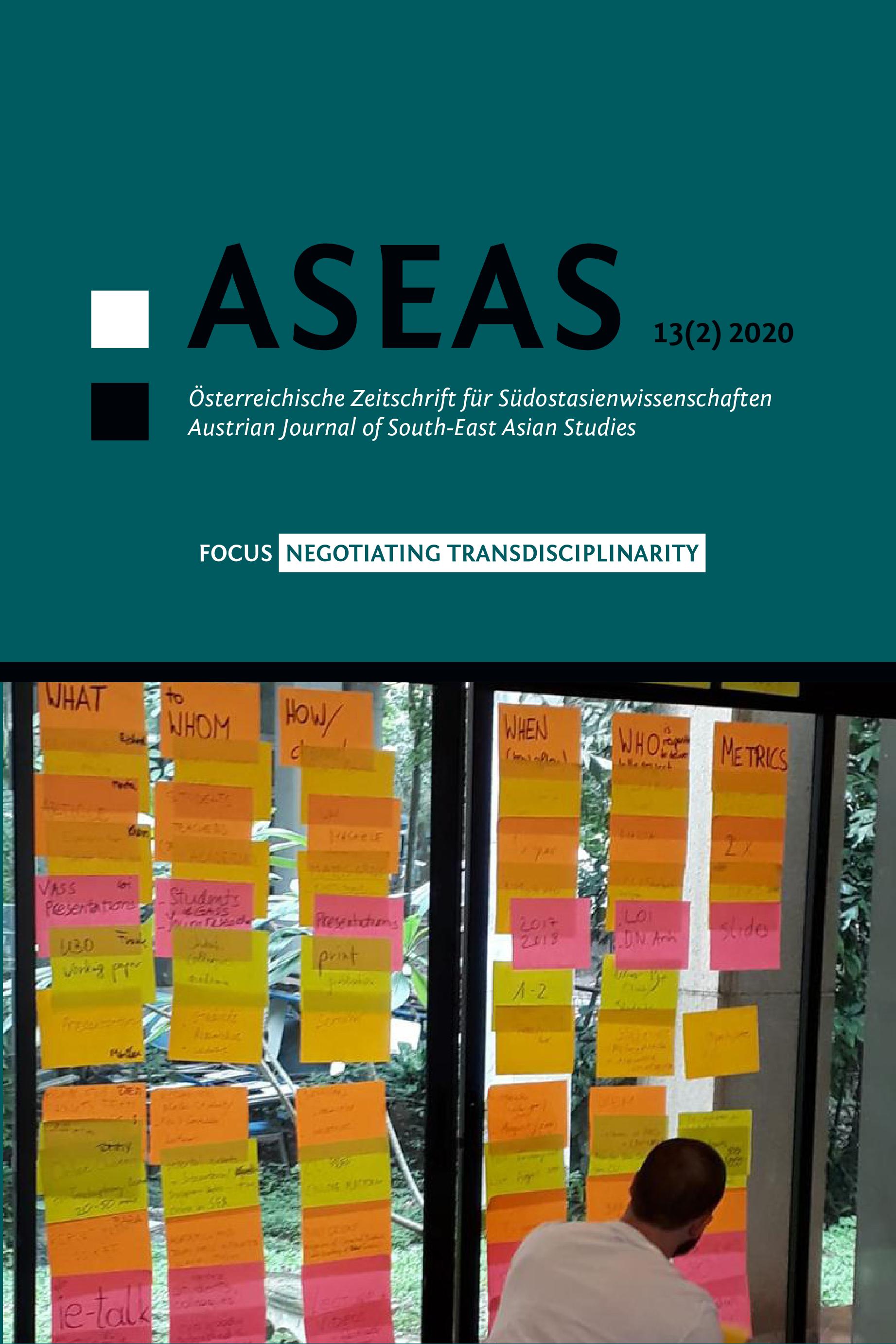Thai Baan Methodology and Transdisciplinarity as Collaborative Research Practices. Common Ground and Divergent Directions
Publication Description
Heis, Alexandra, Vaddhanaphuti, Chayan. (2020). Thai Baan Methodology and Transdisciplinarity as Collaborative Research Practices. Common Ground and Divergent Directions. Advances in Southeast Asia Studies (ASEAS- formerly Austrian Journal of South-East Asian Studies). 13(2). 211- 228.
Abstract
Thai Baan research was developed in the late 1990s as a counter-hegemonic, emancipatory means of knowledge production. Originally developed in the context of protests against a hydropower project, it aims at empowering socially and economically marginalized actors to create and represent their own knowledge and to regain authority in social struggles. This decolonial methodology, conceptualized by Thai academics in collaboration with non-academic actors, has remained largely unnoticed by Northern collaborative or transdisciplinary debates. Transdisciplinary research, although engaged in collaborative research designs, often remains silent on issues of power imbalances as constitutive of research processes. Criticizing the compartmentalization and limitation of academic knowledge production, transdisciplinarity realigns the scientific system of knowledge production to deal with ‘real-world problems’. During the last three decades, transdisciplinarity has unfolded into a collaborative and integrative methodology implemented in a number of fields, such as sustainability, public health, and development planning. This article systematically introduces Thai Baan and transdisciplinarity as two approaches to collaborative research practice. It introduces the context of their emergence, sheds light on the respective notions of knowledge and science, and discusses their respective methodological designs. It is argued that both would benefit from a stronger epistemological foundation in decolonizing, liberating philosophies of science to enhance collaborative action, overcome North-South divisions, and foster global dialogues in emancipatory knowledge production.

